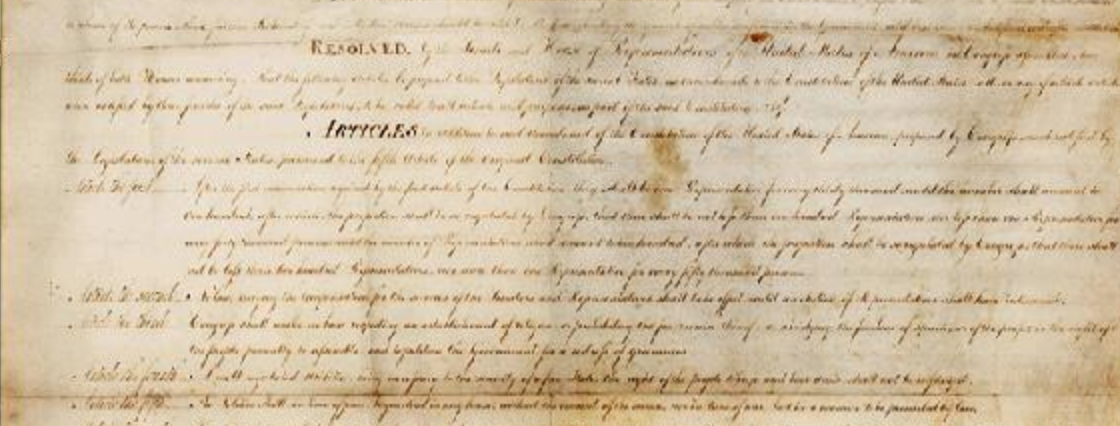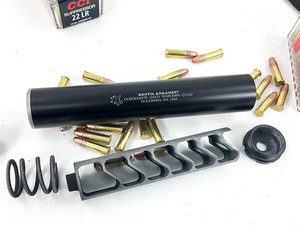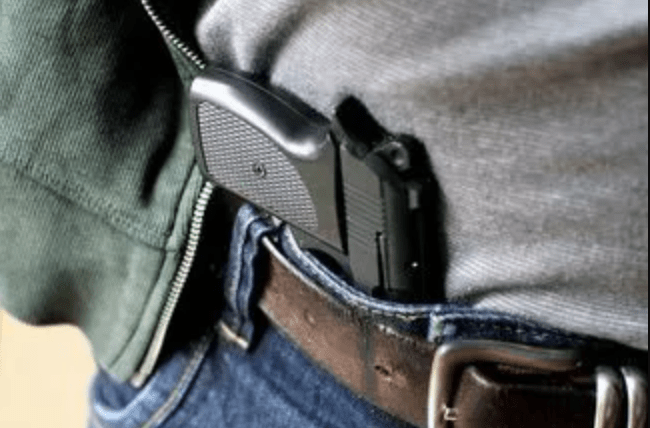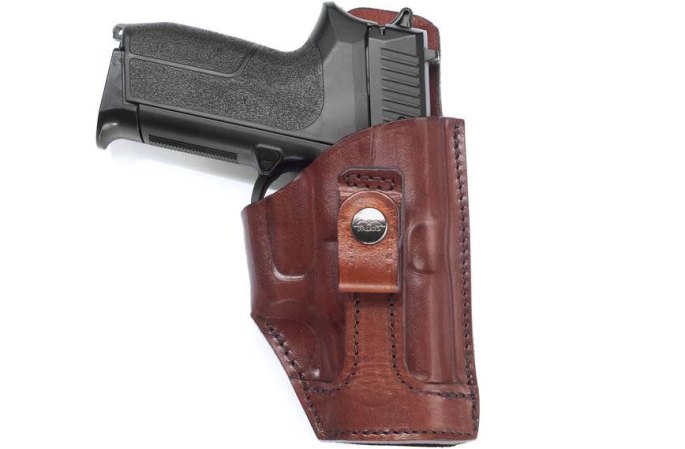We may earn revenue from the products available on this page and participate in affiliate programs. Learn More ›
TOP STORY
Does ‘victory’ in Heller III open door for Supreme Court challenge of watershed 2008 ruling?
On Sept. 18, the United States Court of Appeals for the District of Columbia Circuit struck down four components of D.C.’s onerous gun control laws — including requirements that gun owners re-register firearms every three years and a prohibition on registering more than one pistol per month — but upheld six gun registration provisions challenged by the National Rifle Association and other parties.
The 2-1 ruling in “Heller III” was hailed as a significant triumph by the NRA, which called the decision “a victory for Second Amendment advocates who describe the District’s gun laws as the most restrictive in the country.”
However, in upholding six of D.C.’s provisions, the Court may have left the door open for gun-control proponents to mount a Supreme Court challenge to the watershed Heller v. Washington DC ruling in 2008, which, in essence, clarified that the Second Amendment states it is a fundamental individual right for a non-exempt citizen to own a personal firearm.
In fact, as Georgia State University professor federal courts and constitutional law professor Eric Segall writes in a Sept. 23 column for The Daily Beast, “gun reform advocates should welcome” the ruling because it don’t completely dismiss D.C.’s gun regulation regime as unconstitutional.
“Although it may sound surprising, gun control organizations and those in favor of gun reform legislation, should use all efforts to convince the Supreme Court to review this case,” he writes.
Following the Supreme Court’s 2008 rebuke of the D.C. Council’s prohibition against an individual lawfully keeping and bearing arms, the District imposed a 17-step process to legally own a firearm within its jurisdiction. The Sept. 18 ruling in Heller III was a challenge to those stipulations, including $465 in fees, five hours of mandatory training outside the District, multiple trips to D.C. Metropolitan Police Department headquarters during business hours for fingerprinting, expiration of registration after three years, passing a test on D.C. law and a prohibition on the same person registering more than one handgun during any 30-day period.
District officials justified these requirements on the basis of “protecting police officers” and “promoting public safety.” Significantly, according to the NRA, “the court of appeals found that ‘the District has not offered substantial evidence from which one could draw a reasonable conclusion that the challenged requirements will protect police officers’.”
“While these developments will bring substantial benefits to those who wish to lawfully own guns in D.C.,” the NRA concludes in a press release, “the court still upheld the balance of the registration procedure. If history is any guide, moreover, the District may seek further review of the court’s decision.”
Segall notes that the Supreme Court as now composed has been reluctant to consider challenges to existing gun laws. Since 2010, he says, the Court has not taken a Second Amendment case though it has had plenty of opportunities to do so. In 2014, for instance, the Court refused to review three gun cases involving laws pertaining to the selling of guns to consumers across state lines and a Texas law prohibiting 18-20 year olds from carrying guns in public.
However, Segall cites a oft-repeated adage by Professor Mark Tushnet of Harvard Law School, who once said that a reasonably good way to predict Supreme Court opinions is to imagine the holding of the case as a front page New York Times or Wall Street Journal headline.
“In light of all of the gun tragedies that have been in the news over the last few years, and tragically are likely to be in the news for the foreseeable future, will we see this headline anytime soon: ‘Supreme Court Justices strike down gun reform law?’ Seagull asks. “I don’t think so.”
As AWR Hawkins writes in Breitbart News, longtime gun control voices are claiming the partial ruling provides just the venue needed to challenge the 2008 Heller decision. On Sept. 23, he notes, the Los Angeles Times editorial board restated the paper’s position that the individual right to keep and bear arms was created by the Supreme Court via District of Columbia v Heller (2008).
“The board then made clear their belief that SCOTUS ‘erred’ in doing this and reasserted that the Second Amendment was meant to cover a collective right, not an individual one,” Hawkins writes. “The fact that some gun controls related to the District’s gun registration scheme were able to stand (in the Sept. 18 ruling) leads the Times to conclude that while Americans now have a right to own guns individually, this does not topple ‘the government’s right to regulate ownership’” and that it opens the door for the “further review” Segall describes.
For more, go to:
The Case That Could Refine the 2nd Amendment
Third Time’s the Charm: Federal Appeals Court Voids Provisions of D.C. Gun Control in Heller III
Appeals court strikes down parts of D.C. gun registration requirements
Partial Win in “Heller III”: Federal Court Rules Some DC Gun Laws Unconstitutional
Is it Time to Amend America’s Gun Control Policies?
LA TIMES: SUPREME COURT ‘ERRED’ IN CREATING INDIVIDUAL RIGHT TO GUN OWNERSHIP IN 2008
Editorial: Where are the boundaries on owning guns?
FEAR OF THE FEDS
Americans horrified by shooting rampages, but still fearful of federal gun control
A Rasmussen Reports poll released on Sept. 23 finds that only 34 percent of “likely voters” think gun laws regarding the ownership of guns should be the responsibility of the federal government — down from 38 percent in December.
The fact that an ever-growing percentage of the American public distrusts the federal government as an arbiter and initiator of gun control measures is particularly significant since the poll was conducted in the wake of the horrific Aug. 26 on-air murder of a reporter and cameraman by a lunatic.
“In fact,” according to Richard D. Baris in a Sept. 23 column in The Daily Pundit, the poll string states that “voters say the federal government should not have the final say on gun ownership and don’t even like a country in which guns are only widespread within the government.”
According to Rasmussen, 69 percent of likely voters think it would be bad for the country if only the government had guns, up seven points from 62 percent in December. Moreover, 68 percent of likely voters—nearly 7 out of 10—would feel safer living in a neighborhood where they can own a gun rather than in one where a gun ownership ban is in place.
Rasmussen, which gleaned these results from a national survey of 1,000 “likely voters” on Sept. 20-21, also found that 36 percent of those questioned believe gun ownership is a state government responsibility, while 18 percent say local governments should have the final say.
For more, go to:
Support for Federal Gun Control Laws after Virginia Shooting Falls
Demand for stricter gun laws keeps Americans divided when dealing with gun ownership laws
POLL: 3 OUT OF 10 LIKELY VOTERS SUPPORT FEDERAL INVOLVEMENT IN GUN CONTROL
Support for Federal Control of Guns Continues to Drop
Poll: Majority says ‘No’ to federal control of guns; Nat’l H&F Day Saturday
THE FREE-ZONE REALITY
John Lott restates fact: Gun-free zones are ‘magnets for murderers’
In an editorial penned by economist John Lott and, yet, not published in many prominent newspapers that claim to be forums of intelligent discussion, the undeniable reality that “gun-free zones” generate gun violence rather than diminish it was exposed in a factual, rational manner once again.
Of course, what the thoughtful Lott cannot overcome in his sane, data-driven studies of the lethality of “gun-free zones” is the sad reality that such laws are, and will continue to be, a “feel good” knee-jerk responses by manipulative politicians capitalizing on an emotional TV-educated public’s demand that they “do something.”
Lott, who leads the Crime Prevention Research Center and directed the study “More Guns, Less Crime,” has long advocated disbanding gun-free zones, which he has proves makes victims “defenseless” as a response and preventative measure to violence.
In his mid-September editorial, Lott writes: “Those advocating gun-free zones raise a number of concerns. They argue that permit holders will accidentally shoot bystanders. Or that arriving police will shoot anyone with a gun, including the permit holders. At colleges, fears are raised that students will get drunk and misuse guns.”
Yet, he documents, “Out of the innumerable cases in which concealed carry holders have stopped shootings in malls, churches, schools, universities and busy downtowns, no permit holder has ever shot a bystander. Nor in these cases have the police ever accidentally shot a permit holder.”
Lott concludes: “Gun-free zones are magnets for murderers. Even the most ardent gun control advocate would never put ‘Gun-Free Zone’ signs on their home. Let’s finally stop putting them elsewhere.”
For more, go to:
John Lott: Gun-free zones are magnets for murderers
Gun-free zones are magnets for murderers
DEBUNKING THE GUN FREE ZONE MYTH: “MASS MURDER MAGNETS”
Gun-free Zones Called “Magnets for Mass Shooters”
Column: Gun-free zones provide false sense of security
Study: Stricter state gun laws keep firearms out of hands of youth
Tighter gun-control laws may lower chances that teens carry firearms
Youth Carrying Guns, But Can They
STATE ROUNDUP
Catch-22: New Jersey gun laws turn legal M1 carbine owner into a felon
A Sept. 15 New Jersey Superior Court Appellate Division ruling determined a man’s World War II vintage M1 carbine, inherited from his grandfather, is an “assault weapon” and will not be returned after being confiscated by police two years ago because of a temporary restraining order.
“Worse yet,” writes Sam Rolley in Personal Liberty on Sept. 23, “the state is stripping the resident’s Second Amendment rights because he possessed the firearm.”
According to the Associated Press, New Jersey State Police confiscated Danny Burt’s M1 carbine and 20 other firearms in April 2013 in compliance with a temporary restraining order lodged against him. When the order was dropped, Burt attempted to retrieve his property, but was informed he’d committed a felony by owning the M1 and was no longer eligible to own firearms.
Burt appealed the decision, explaining that the rifle was handed down to him in 2006 by his grandfather and he didn’t know it was in working condition because he had never discharged. According to court documents, Burt also explained that he held on to the firearm because it had considerable sentimental value.
“The court, unmoved, sided with prosecutors,” Rolley writes.
The Court ruled “that the M-1 carbine is an illegal weapon and is therefore improper to possess” in New Jersey. Further, the court charged that since Burt was guilty of a second-degree felony under the state’s laws for owning the so-called assault rifle, the state will keep his remaining firearms and bar him from future gun purchases.
For more, go to:
New Jersey gun laws turn resident into felon, strip 2nd Amendment rights over M1 Carbine
Will N.J. lawmakers override Christie on gun bill?
Michigan: U-M — We decide campus gun laws, not State of Michigan
Michigan: Lawyer says judge catered to Ann Arbor voters in dismissing gun lawsuit against schools
Gun-friendly West Virginia eyes adding new Capitol security
New Hampshire: Gun safety measures can succeed
Tennessee Gun Laws Leave Permit Holders Confused
Montana city leaders consider background checks for all gun sales
Illinois: Gun Control vs. People Control
California: Last gun shop in San Francisco confirms closure due to new law
Pennsylvania: Toomey Walks ‘High Wire’ On Gun Control in Re-election Bid







